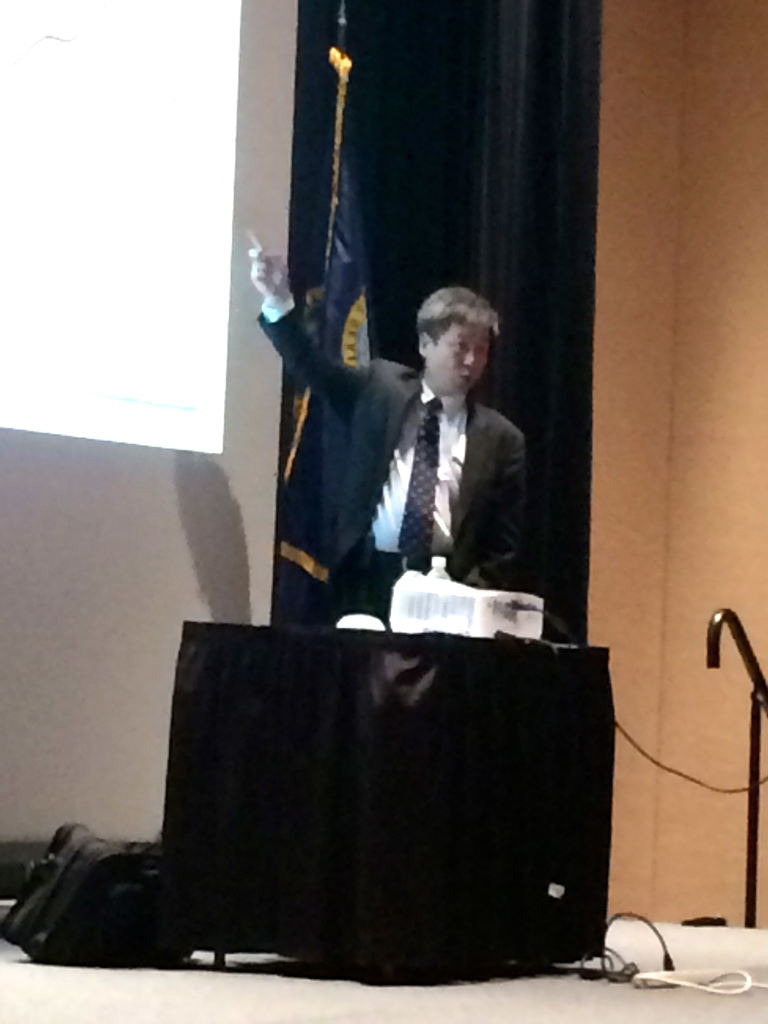Yong Zhao doesn’t have a problem with Common Core standards.
Except that they could become common.
And could become the core.

Zhao — a University of Oregon education professor and author — challenged a ballroom full of Idaho educators and administrators Wednesday. He told them to personalize the educational experience for all children, so they are best prepared to use their individual strengths and survive in a workplace that values entrepreneurial thinking.
“If Common Core truly succeeds, we lose,” Zhao said, wrapping up the Idaho Association of School Administrators’ annual conference in Boise. “We’ve got to expand.”
The multistate Common Core movement, including the Idaho Core Standards, has drawn criticism from conservatives and some educators. But most Idaho education stakeholders and high-ranking elected officials support the Idaho Core Standards — and that list of supporters includes IASA, which represents school administrators from across the state.
Backers of the Idaho Core Standards, including the IASA, see the new math and English language standards as a cornerstone in preparing students for college, in hopes of boosting the state’s lagging college attendance rates and college graduation statistics.
But Zhao said the Common Core standards continue the nation’s schools on the path of a sausage-making “suicidal mission.” The standards try to shoehorn all kids into the same mold, and seek to measure success or failure by using tests that compare students in Idaho to students in other states, and other nations.
And at least where standardized test scores are concerned, Zhao said, “American education has always been bad.”
The secret to America’s success — and building an entrepreneurial economy — can be found in mindset.
American student test scores lag behind other nations, but American students also have a higher level of confidence than their competitors. And they’re more interested in reading and math than students from nations that score higher on standardized tests.
American schools, and American universities, need to rethink their approach to preparing kids. Technology is making some professions obsolete. Law schools are generating a glut of attorneys.
Instead, schools need to prepare students who have the confidence, the people skills and the problem-solving capabilities to compete in an entrepreneurial economy. “Creativity today is not a luxury, reserved for (a) few,” he said. “It is job security.”
Zhao used humor to make many of his points.
He used reality TV mainstay Kim Kardashian as an example of someone who has, at least, created a niche for herself in the workplace. “Kim Kardashian is famous for being well-known.”
Zhao dismissed the typical education yardsticks — college-readiness or career-readiness — in favor of “out-of-the-basement readiness.” When students are done with their education, are they prepared to move out and support themselves?
And he got laughs with a slight jab at Idaho — and the false belief that the Idaho Core Standards are fundamentally different from a movement taking root in more than 40 states.
“You’re too independent to be part of the nation,” he said. “Anything I have to say has to do with someone else.”
